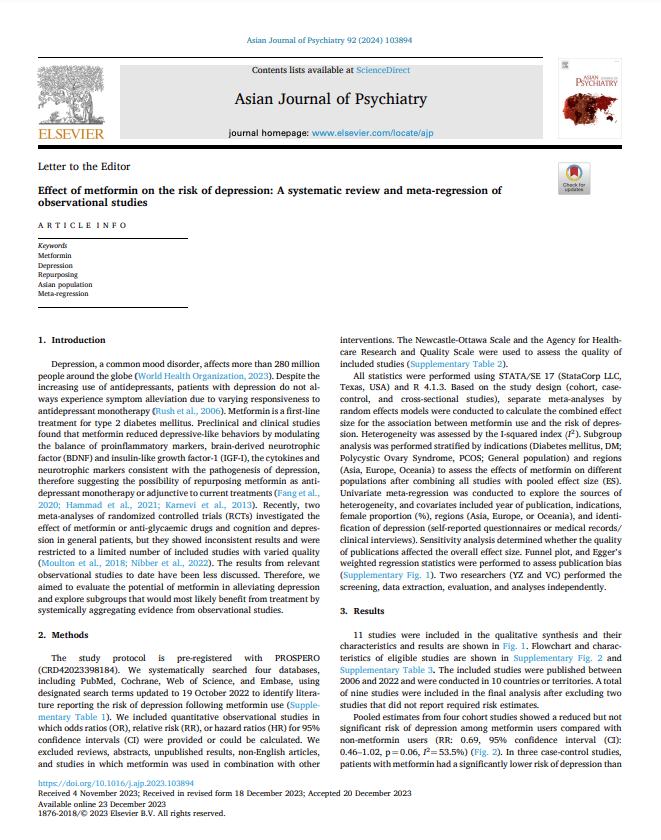
Depression, a common mood disorder, affects more than 280 million people around the globe (World Health Organization, 2023). Despite the increasing use of antidepressants, patients with depression do not always experience symptom alleviation due to varying responsiveness to antidepressant monotherapy (Rush et al., 2006). Metformin is a first-line treatment for type 2 diabetes mellitus. Preclinical and clinical studies found that metformin reduced depressive-like behaviors by modulating the balance of proinflammatory markers, brain-derived neurotrophic factor (BDNF) and insulin-like growth factor-1 (IGF-I), the cytokines and neurotrophic markers consistent with the pathogenesis of depression, therefore suggesting the possibility of repurposing metformin as antidepressant monotherapy or adjunctive to current treatments (Fang et al., 2020, Hammad et al., 2021, Karnevi et al., 2013). Recently, two meta-analyses of randomized controlled trials (RCTs) investigated the effect of metformin or anti-glycaemic drugs and cognition and depression in general patients, but they showed inconsistent results and were restricted to a limited number of included studies with varied quality (Moulton et al., 2018, Nibber et al., 2022). The results from relevant observational studies to date have been less discussed. Therefore, we aimed to evaluate the potential of metformin in alleviating depression and explore subgroups that would most likely benefit from treatment by systemically aggregating evidence from observational studies.
